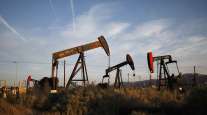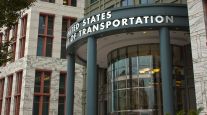Bloomberg News
Daimler to Pay $2.2 Billion to Settle US Diesel Issues

[Ensure you have all the info you need in these unprecedented times. Subscribe now.]
Daimler AG will pay about $2.2 billion to settle U.S. diesel-emissions issues in the latest fallout from years of closer regulatory scrutiny on vehicle pollution.
An agreement in principle with authorities including the U.S. Justice Department and Environmental Protection Agency will cost the German automaker roughly 1.27 billion euros ($1.5 billion), according to a statement. The Stuttgart-based company will pay another 592 million euros to settle class-action litigation brought by consumers.
“While this hopefully resolves this issue and allows the company to focus on other pressing challenges, it is a reminder that other stakeholders are likely to receive the majority of Daimler’s cash flow in the period 2020-23 irrespective of underlying performance,” Citigroup Inc. analyst Angus Tweedie said in a note.
Daimler shares fell 1.2% to 41.91 euros as of 9:55 a.m. in Frankfurt, in line with the Stoxx 600 Autos & Parts index. The shares are down 15% for the year.
The pacts resolve issues that arose when U.S. regulators stepped up their examination of diesel emissions after Volkswagen AG’s cheating scandal emerged in 2015. The Justice Department asked Daimler to investigate its vehicle-certification process the following year.
Although the costs add to Daimler’s financial headwinds triggered by the COVID-19 pandemic, the amounts are relatively small compared with the larger-scale emissions violations that have cost VW more than 30 billion euros. Daimler says it fully cooperated with U.S. authorities, whereas VW officials lied to EPA and California regulators before admitting the company created devices to defeat emissions tests.
Daimler’s issues also involve fewer vehicles. Its agreement with U.S. authorities covers civil and environmental claims related to the emission-control systems of about 250,000 cars and vans. VW admitted in 2015 to rigging as many as 11 million diesel engines worldwide, including roughly 600,000 in the U.S.
Emissions Issues
The auto industry is still far from out of the woods with U.S. regulators.
Fiat Chrysler Automobiles NV recently disclosed that it had started discussions with the Justice Department’s criminal division to resolve an investigation of diesel-emissions issues. Ford Motor Co. also revealed last year that its emissions-certification process may have been flawed and that the Justice Department had opened a criminal investigation.
Electric car maker Tesla Inc. has meanwhile posted a string of consecutive quarterly profits thanks in part to selling regulatory credits to carmakers that could not otherwise meet tougher pollution standards. The Model 3 maker’s market capitalization has soared past $300 billion, almost double VW, Daimler and Ford’s combined value.
Years of Impact
Daimler expects to incur hundreds of millions of euros in additional expenses related to fulfilling the requirements of its settlements and said the costs will impact its business for the next three years.
The company warned in its annual report published in February that German motor industry watchdog KBA is likely to rule that additional vehicles are equipped with defeat devices. Daimler boosted provisions for legal and regulatory costs as a result.
In its statement, Daimler said it has made sufficient provisions for the cost of the U.S. settlements. In the coming weeks, authorities will file consent decrees with a U.S. district court for final approval.
A spokesperson for the California Air Resources Board, one of the authorities involved in the settlements, said the consent decree is expected to be filed in mid-September. Representatives for the Justice Department and EPA declined to comment.
Want more news? Listen to today's daily briefing:
Subscribe: Apple Podcasts | Spotify | Amazon Alexa | Google Assistant | More




